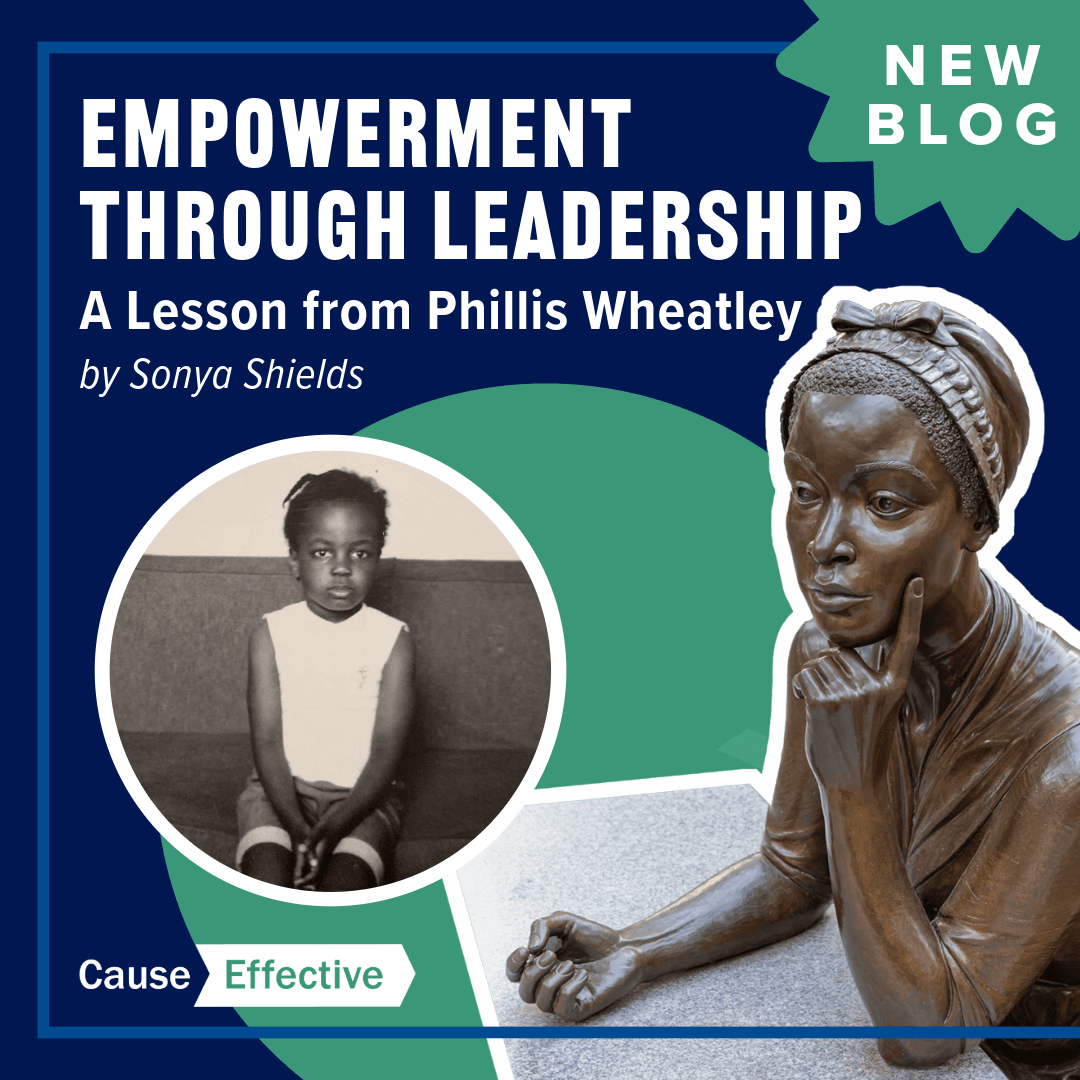
As Cause Effective honors Black History Month to recognize the accomplishments and impact of African Americans in the United States, this year's celebration lands differently. I was born in America during the civil rights movement. My parents are originally from Louisiana, migrated to Chicago, and I have traced my ancestry to Nigeria, Cameroon, Ghana, Senegal, Benin, and Togo. Like so many African Americans, there is also European ancestry that traces to Ireland. I often think of my ancestors and what they endured and their resilience. It keeps me grounded and focused in this work especially as we face this election year and the future of this country. The racial and political unrest, the continued violence and wars, and the growing number of bills that push an agenda of hate and division.
This Black History Month is sparking conversation events that will create space to have a deeper nonprofit dialogue about how to come together as a sector. I’m proud to have been invited to talk with nonprofit leaders at several engagements this month. These conversations are necessary and I’m pleased to see that nonprofit leaders are creating a space where we can become united and work in solidarity to ensure organizations have the capacity to address the challenges ahead. What has been a topical discussion is how to shift nonprofit management behavior to strengthen organizational culture. And that means, DEI must be the foundation that every nonprofit organization’s CEO/Executive Director makes a core value and practice.
In the past seven months, many people have asked: How do you feel being the first Black person as the Executive Director of Cause Effective? I have shared that I feel in my purpose and in service to something that is bigger than me. I’m in service to social change and racial justice in this country. This inner understanding drives my approach every day and it is fundamentally based in diversity, equity, and inclusion practices. For me, there is no way to separate DEI from my work because it’s the foundation of everything that I stand for.
When I assumed the leadership role in July of 2023, I anticipated the challenges that executive directors face, but there are multiple obstacles and tensions I experience because of my multiple identities and the impact of intersectionality. Overall, I am pleased to have felt supported by many leaders in the nonprofit sector. But what I think is important to be named is the systematic way in which I do experience Phillis Wheatley moments. Black women in leadership positions experience Phillis Wheatley moments over and over again. Phillis Wheatley was the first African American woman to publish a book of poetry in 1773. She was born in 1753 in West Africa and was sold by a local chief to a visiting trader, a wealthy Boston merchant and tailor John Wheatley for his wife. John and his wife were known to be “progressive” in Boston and educated Phillis. By the time she was 12 years old, Phillis was reading Greek and Latin classics in their original languages. At one point, she was one of the most well-known Black people in the country because of her writing, which brought her international fame.
It was a shock to many colonists that an African could have intellectual capabilities and the skills to write poetry, which was considered to be fine art. If an African girl could write poetry, what else were Africans capable of doing? A group of prominent white men in Boston gathered to investigate whether Phillis Wheatley indeed wrote the poetry. They needed proof. She was summoned to court where she had to defend the authorship of her poetry.
Every woman has experienced a Phillis Wheatley moment and women of color experience having to prove ourselves time and time again.
Cause Effective’s Preparing the Next Generation initiative and our workshop series that focus on equity in fundraising, communications, and board governance, provide strategic guidance to help nonprofit leaders and Board members dismantle the tensions and obstacles around power and race, and the pathway to implementing diversity, equity, and inclusion. The PTNG program has been an important offering to the nonprofit sector because we have seen talented people of color in the development and fundraising field leave organizations or become consultants. This turnover is due to people of color, and especially women, experiencing Phillis Wheatley moments within nonprofit organizations.
I often highlight in talks with nonprofit professionals and Board members that when you look back at the history of social movements throughout time, societal change happened through collaboration and allyship. While there have been power imbalances, sexism, and racism in all social movements — we must move towards the middle and form alliances to create true social change and racial justice. The path forward is based on shared organizational values that drive our work across the nonprofit sector, in our communities, and in partnership with donors and funders.
This pathway forward is where DEI must be a core value and practice within nonprofits. Because the nonprofit sector is at a turning point and we all must show up differently in this critical work. Therefore, the talent and experience of nonprofit professionals of color who bring their diverse experience, voices, ideas, and innovative practices into nonprofit organizations should be embraced as an asset to the organization’s culture and furthering its mission.
In closing, I have earned the seat that I am in as the Executive Director and President of Cause Effective, and I truly want to partner with people in solidarity, as one unified voice to strengthen missions and ensure the thrivability of the nonprofit sector.




